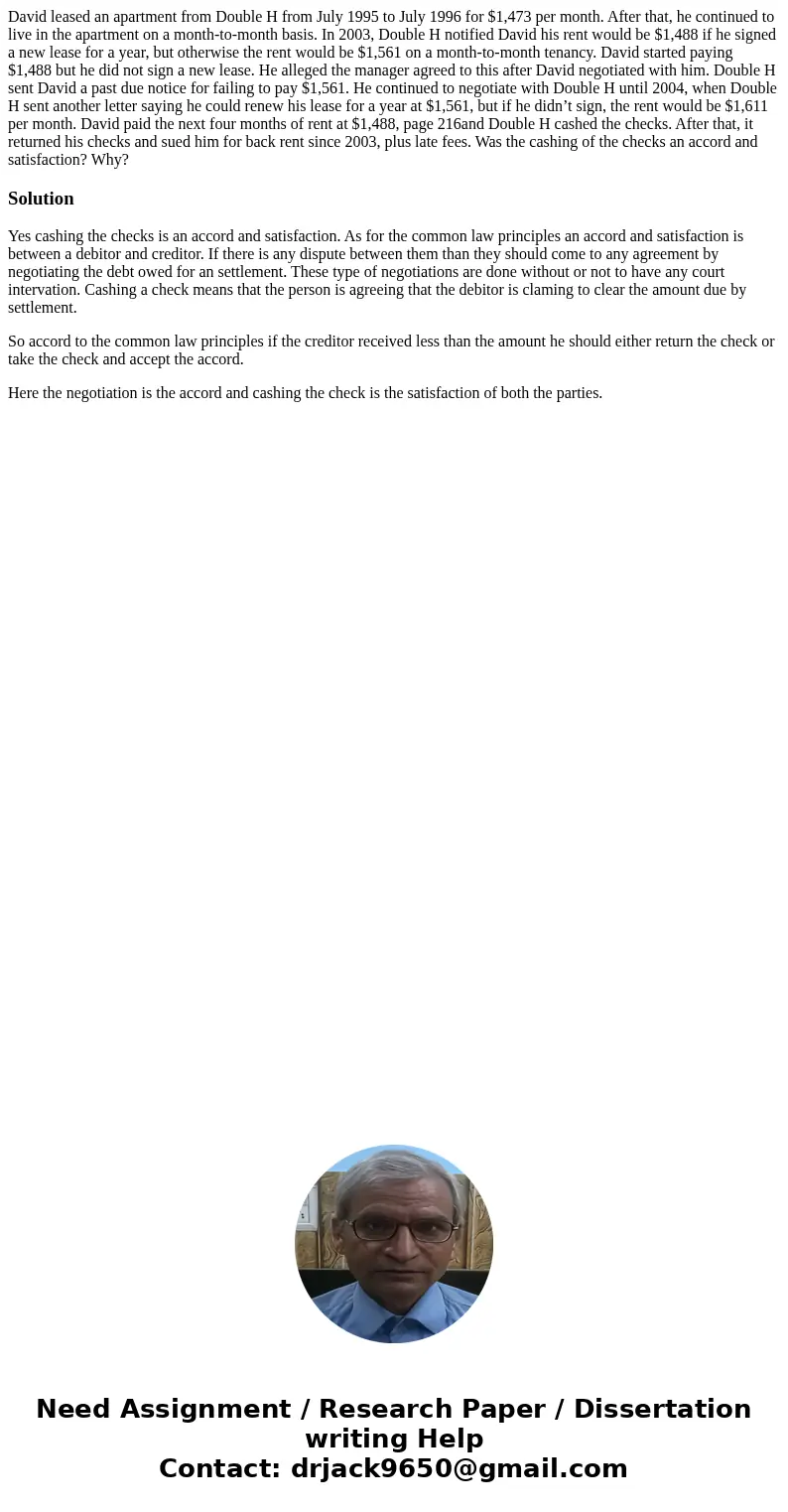David leased an apartment from Double H from July 1995 to Ju
David leased an apartment from Double H from July 1995 to July 1996 for $1,473 per month. After that, he continued to live in the apartment on a month-to-month basis. In 2003, Double H notified David his rent would be $1,488 if he signed a new lease for a year, but otherwise the rent would be $1,561 on a month-to-month tenancy. David started paying $1,488 but he did not sign a new lease. He alleged the manager agreed to this after David negotiated with him. Double H sent David a past due notice for failing to pay $1,561. He continued to negotiate with Double H until 2004, when Double H sent another letter saying he could renew his lease for a year at $1,561, but if he didn’t sign, the rent would be $1,611 per month. David paid the next four months of rent at $1,488, page 216and Double H cashed the checks. After that, it returned his checks and sued him for back rent since 2003, plus late fees. Was the cashing of the checks an accord and satisfaction? Why?
Solution
Yes cashing the checks is an accord and satisfaction. As for the common law principles an accord and satisfaction is between a debitor and creditor. If there is any dispute between them than they should come to any agreement by negotiating the debt owed for an settlement. These type of negotiations are done without or not to have any court intervation. Cashing a check means that the person is agreeing that the debitor is claming to clear the amount due by settlement.
So accord to the common law principles if the creditor received less than the amount he should either return the check or take the check and accept the accord.
Here the negotiation is the accord and cashing the check is the satisfaction of both the parties.

 Homework Sourse
Homework Sourse